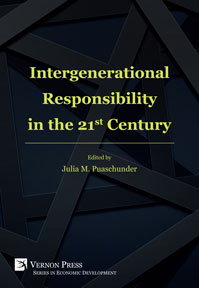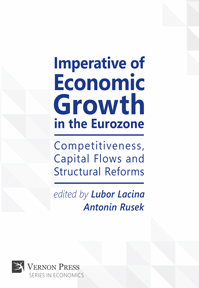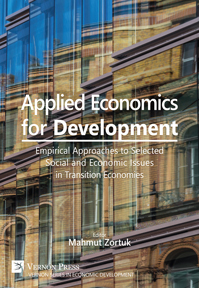Search
Browse
by Publication status
by Subject
Anthropology (26) Art (171) Business and Finance (38) Cognitive Science and Psychology (63) Communication and Journalism (51) Economics (116) Education (71) History (169) Human Geography (23) Interdisciplinary (43) Language and Linguistics (178) Law (16) Music Studies (18) Philosophy (222) Political Science and International Relations (127) Sociology (404) Statistics and Quantitative Methods (21)by Series
Series in Literary Studies (62) Series in Philosophy (57) Series in Education (49) Series in Sociology (42) Series in World History (31) Series in Politics (30) Bridging Languages and Scholarship (26) Series in Language and Linguistics (25) Cognitive Science and Psychology (20) Series in Philosophy of Religion (20) Series in American History (19) Series in Art (19) Critical Perspectives on Social Science (16) Series in Cinema and Culture (16) Curating and Interpreting Culture (15) Series on the History of Art (14) Series in Anthropology (13) Series in Critical Media Studies (13) Economics (13) Series in Business and Finance (12) Series in Music (12) Series in Performing Arts (9) Philosophy of Personalism (8) Series in Communication (8) Series in Law (8) Series in Economic Methodology (7) Series on Climate Change and Society (7) Classics in Economics (6) Series in Economic Development (6) Women's Studies (6) Philosophy of Forgiveness (5) Series in Built Environment (5) Series in Economic History (5) Series in Philosophy of Science (4) Series in Social Equality and Justice (4) Series on the History of Science (4) Serie en Sociología (3) Series in Contemporary History (3) Series in Creative Writing Studies (3) Series in Design (3) The Interdisciplinary Built Environment (3) Series in Heritage Studies (2) Series in Innovation Studies (2) Serie en Ciencias Políticas (1) Serie en Comunicación y Medios (1) Serie en Entorno Construido (1) Serie en Estudios Culturales (1) Serie En Estudios Literarios (1) Serie en Filosofía (1) Serie en Música (1) Series in Classical Studies (1) Series in Economics of Technological Change (1) Series in Philosophy of Race (1) Series in Urban Studies (1)by Language
English Spanishby Author
Browsing with filters

Intergenerational Responsibility in the 21st Century
Edited by
Julia M. Puaschunder, The New School
Availability: In stock
330pp. ¦ $65 £47 €53
Intergenerational responsibility is multi-faceted.This edited volume reflects intergenerational aspects in light of spatial, age and racial segregation, global warming, and the aging Western world population. Intergenerational global governance is addressed in the era of globalization and migration. The intergenerational glue, intergenerational crises resilience strategies and intergenerational responses to external shocks serve as innovative global responsibility implementation guidelines in the international arena. Fostering intergenerational harmony through intergenerational income mobility and intergenerational opportunities, environmental protection and sustainable development aids alleviate the most pressing contemporary challenges of humankind. Overall, this interdisciplinary and applied contribution to the scholarship on intergenerational responsibility supports the leadership and management of global governance agency in the private and public sectors.
Generational Interdependencies: The Social Implications for Welfare
Edited by
Beverley A. Searle
Availability: In stock
218pp. ¦ $60 £49 €56
The issue of generational transfers is growing in importance. Populations are ageing, placing an increasing burden on provision of pensions, health care and other welfare services. In many nations the imbalance between a growing, older generation, supported by a shrinking younger generation, has fuelled debates about intergenerational justice. The key argument being that political and institutional developments over the last century have been to the advantage of older generations at the expense of current younger and future generations. But this only addresses half of the story, neglecting the flows of resources, through private, family channels. One key response to the growing fiscal problem of ageing societies has been to focus responsibility on self-funding and familial support. The growth of asset values, particularly housing, which are concentrated among the elderly, underpin such strategies. But this exposes new risks as potentially extractable resources are determined by wider fluctuations in the economy, and housing markets in particular. Clearly, these cohort effects, and responses to them, play out differently in different national developmental settings, depending on long-run patterns of economic, social and demographic change. This collection address these issues and provides original insights across different international contexts. The collection focusses on financial and non-financial transfers, generational interdependencies, and the role of labour and housing markets in welfare support, set against the changing economic landscape following the Great Financial Crisis of 2007. Although institutional and national differences exist the key emerging issues are the same: the financial and welfare challenges of supporting aging in societies; inequalities in the availability of assets across individuals, families and nations; and the extent to which private asset accumulation can support families over the life course. Drawing from examples across European countries, this collection will nonetheless be relevant to researchers and policy makers in other nations addressing the complexities of providing welfare across the life course in the face of restricted financial resources.
Financial Innovation: Theories, Models and Regulation
G. V. Satya Sekhar, Gitam University, India
Availability: In stock
154pp. ¦ $55 £42 €47
Financial innovation is a regular feature of the global financial system. Financial innovation results in greater economic efficiency over time. In the process of creating a new financial product, besides basic theory of financial management, a financial engineer needs to acquire knowledge of optimization and financial modeling techniques. Modern financial innovation is underpinned by a rich literature including the seminal studies by Levich (1985), Smith, Smithson, and Wilford (1990), Verghese (1990), Merton (1992), Levine (1997), John D Finnerty (2002), Tufano (2003) and Draghi (2008), among many others. This book corresponds to the need to provide an integrated study on financial innovation and the economic regulatory mechanism. A key part of financial innovation covered in the book is the process of creating innovative financial securities and derivative pricing that offers new pay-offs to investors. The book also covers a selection of empirical studies corroborating financial innovation theories. It also exposes myths surrounding performance evaluation models. This book is presented in six chapters. The first chapter outlines important considerations on the application of financial innovation theories. The second chapter presents the theories that underpin financial innovation practice. The third chapter focuses on use of technology for financial modeling. The fourth chapter identifies the relationship between financial innovation and the wider economic system. The fifth chapter discusses the place of financial innovation in the global financial system. The sixth and final chapter presents a comparative analysis of India and the United States.
Imperative of Economic Growth in the Eurozone: Competitiveness, Capital Flows and Structural Reforms
Edited by
Antonin Rusek, Susquehanna University
and Lubor Lacina, Mendel University, Czech Republic
Availability: In stock
268pp. ¦ $62 £51 €58
European economic recovery appears to be taking hold. So is the European crisis over? The acute phase of the crisis passed, however a number of medium and long term issues remain. The policies of “internal devaluations” are working, albeit slowly, to restore competitiveness in the countries most affected by the crisis. However, growth remains at best sluggish. The medium and long term outlook remains highly uncertain, fomenting social tensions and endangering political stability. The restoration of economic dynamism is increasingly perceived as the answer to the question of the “European” future – economically, politically and socially. There is a broad consensus that dynamic structural reforms and the restoration of competitiveness at the level of the global economy are key answers to current European challenges. However, whatever the form these may take, the transfer of resources is implicit (and seemingly necessary), to underpin the current structure of eurozone. This indeed raises the question of governance – both fiscal and monetary. After all, the provision of resources implies an allocation – and it is hard to imagine that resources will be provided to the common pool unless the providers have some say with respect to allocation. And that requires some form of common (i.e. centralized) decision-making procedures, in all likelihood exceeding the common understanding of the acquis communautaire as it exists today – i.e. some form of the effective political arrangement. In this context, the basic idea which connects all contributions in this volume is the analysis of the problems which affected the Eurozone in the past decade and the challenges and dilemmas the Eurozone will face in the coming years.
Applied Economics for Development: Empirical Approaches to Selected Social and Economic Issues in Transition Economies
Edited by
Mahmut Zortuk, Dumlupınar University, Turkey
Availability: In stock
276pp. ¦ $85 £60 €77
Transition economies experience transformation of their economic system. Following the disintegration of the Soviet Union, a number of former socialist countries underwent transitions from central planning to a market economy. More generally, many rapidly growing economies undergo no less profound transformations of their economic systems. Contrary to common misconception, the transition process cannot be simply reduced to eliminating state intervention and liberalizing the economy. Economies under transition exhibit a unique set of policy challenges. Unlike developed market economies, missing markets or market failures abound. Economic transformation takes the form of rapidly evolving patterns of international trade and investment, industrial structure and consumption. These changes call for appropriate public policies. A continuing flow of investment hinges on suitable institutions, the provision of public infrastructure and other public goods. Adequate regulation can be central in ensuring that environmental resources are sustainably managed. And sophisticated production systems, call for corresponding social institutions in terms of education, health and welfare provisions. In all these cases, accurate empirical assessments are central to the design of effective policy. This book presents a selection of pressing economic and social issues in transition economies. Selected issues include the development of particular industrial sectors, the drivers and consequences of foreign direct investment, public finances, urbanization, social indicators, environmental policy and energy diversification. In each case an original empirical analysis is performed, using a variety of advanced quantitative methods, applied to recent data. The book will be of interest to economists studying transition economies, economic development or having a general interest in applied economics. It will be of particular interest to applied economists, policy analysts and policy makers in transition economies, concerned with the shape and direction of appropriate economic reforms.






